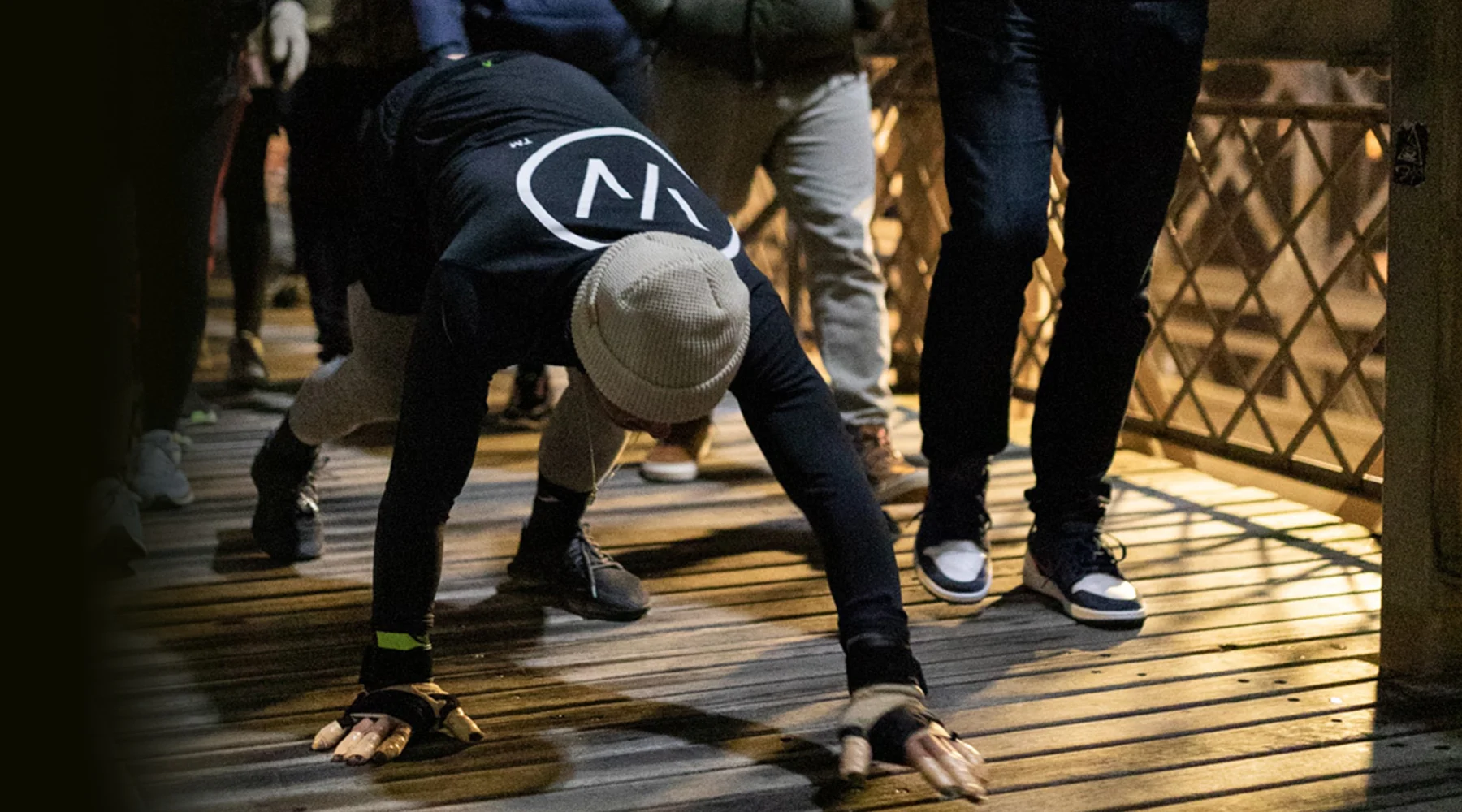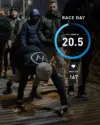Topics
- Article
- Member Stories
- Running
The Strain of Bear-Crawling a Marathon

WHOOP data from Devon Levesque's epic 26.2-mile bear-crawl.
The 2020 New York City marathon was originally scheduled for November 1 of this year. Due to the COVID-19 pandemic it didn’t happen, and instead became a virtual event runners could do in their hometowns on a date of their choosing. WHOOP member Devon Levesque, a 28-year-old NYC-based trainer and fitness expert, began the marathon in Brooklyn on Friday, October 30, and finished it in Central Park on Saturday, October 31. It took him 20 hours and 48 minutes to complete the race. Why? Rather than running 26.2 miles, he bear-crawled it.
View this post on Instagram
A post shared by Devon Lévesque (@devonlevesque) on Nov 2, 2020 at 2:40pm PST
Devon took on this challenge in an effort to raise money for FitOps, an organization that helps veterans find careers in fitness as coaches and trainers. His goal was also to increase awareness for veteran mental health and suicide prevention. When Devon was 16 years old, his father took his own life. In order to ensure he could actually accomplish this feat, Devon began getting ready for it over a year ago, putting in 4-6 hours of work every day. How do you train to bear-crawl a marathon?
View this post on Instagram
A post shared by Devon Lévesque (@devonlevesque) on May 19, 2020 at 5:06am PDT
Last July, Devon bear-crawled a world-record 12.5 miles in 10.5 hours as a “practice round” of sorts. His key takeaway was that he needed to protect his hands. For the marathon, he wrapped them in roughly 9 layers of tape in order to prevent blisters.
View this post on Instagram
A post shared by Devon Lévesque (@devonlevesque) on Oct 24, 2020 at 8:06am PDT
On the morning of October 30, Devon woke up in the green with a 67% recovery after a solid 7 hours of sleep. His heart rate variability was 149 and his resting heart rate was 39 bpm--his body was well prepared to take on this massive challenge. Below is Devon's real-time heart rate data from when he started his journey at 5 pm Friday evening, through when he finished just before 2 pm Saturday afternoon. While you can see it dip during his brief rest periods, his HR peaked at 167 and for the most part stayed in the 125-150 range for nearly 21 straight hours.

Devon Levesque's live heart rate over a 21-hour span while bear-crawling 26.2 miles.
Additionally, Devon posted a strain of 20.5 (a measure of cardiovascular exertion on a scale of 0-21) during his crawl, and burned roughly 11,400 calories.

Almost as impressive as the all-out effort Devon put forth to complete the bear-crawl marathon, the day afterwards his recovery was still 52%. But as to be expected, it obviously took a little time for his metrics to bounce back to normal. A week after the race, Devon posted on his Instagram “[My] body feels good, I’m about 60% recovered.”